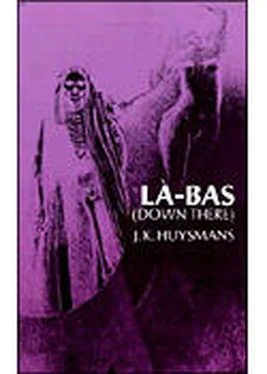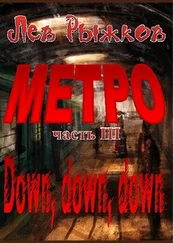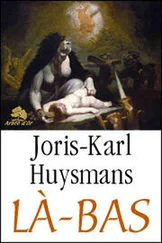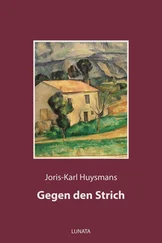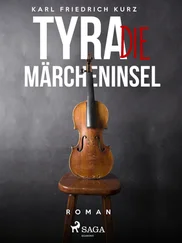Joris-Karl Huysmans - Down There (Là-Bas)
Здесь есть возможность читать онлайн «Joris-Karl Huysmans - Down There (Là-Bas)» весь текст электронной книги совершенно бесплатно (целиком полную версию без сокращений). В некоторых случаях можно слушать аудио, скачать через торрент в формате fb2 и присутствует краткое содержание. Жанр: Классическая проза, на английском языке. Описание произведения, (предисловие) а так же отзывы посетителей доступны на портале библиотеки ЛибКат.
- Название:Down There (Là-Bas)
- Автор:
- Жанр:
- Год:неизвестен
- ISBN:нет данных
- Рейтинг книги:3 / 5. Голосов: 1
-
Избранное:Добавить в избранное
- Отзывы:
-
Ваша оценка:
- 60
- 1
- 2
- 3
- 4
- 5
Down There (Là-Bas): краткое содержание, описание и аннотация
Предлагаем к чтению аннотацию, описание, краткое содержание или предисловие (зависит от того, что написал сам автор книги «Down There (Là-Bas)»). Если вы не нашли необходимую информацию о книге — напишите в комментариях, мы постараемся отыскать её.
Down There (Là-Bas) — читать онлайн бесплатно полную книгу (весь текст) целиком
Ниже представлен текст книги, разбитый по страницам. Система сохранения места последней прочитанной страницы, позволяет с удобством читать онлайн бесплатно книгу «Down There (Là-Bas)», без необходимости каждый раз заново искать на чём Вы остановились. Поставьте закладку, и сможете в любой момент перейти на страницу, на которой закончили чтение.
Интервал:
Закладка:
"Nearly there?"
But in a low voice full of anguish she said, "Do not speak."
Bored by this taciturn, almost hostile tête-à-tête, he began to examine the route through the windows of the cab. The street stretched out interminable, already deserted, so badly paved that at every step the cab springs creaked. The lamp-posts were beginning to be further and further apart. The cab was approaching the ramparts.
"Singular itinerary," he murmured, troubled by the woman's cold, inscrutable reserve.
Abruptly the vehicle turned up a dark street, swung around, and stopped.
Hyacinthe got out. Waiting for the cabman to give him his change, Durtal inspected the lay of the land. They were in a sort of blind alley. Low houses, in which there was not a sign of life, bordered a lane that had no sidewalk. The pavement was like billows. Turning around, when the cab drove away, he found himself confronted by a long high wall above which dry leaves rustled in the shadows. A little door with a square grating in it was cut into the thick unlighted wall, which was seamed with fissures. Suddenly, further away, a ray of light shot out of a show window, and, doubtless attracted by the sound of the cab wheels, a man wearing the black apron of a wineshop keeper lounged through the shop door and spat on the threshold.
"This is the place," said Mme. Chantelouve.
She rang. The grating opened. She raised her veil. A shaft of lantern light struck her full in the face, the door opened noiselessly, and they penetrated into a garden.
"Good evening, madame."
"Good evening, Marie. In the chapel?"
"Yes. Does madame wish me to guide her?"
"No, thanks."
The woman with the lantern scrutinized Durtal. He perceived, beneath a hood, wisps of grey hair falling in disorder over a wrinkled old face, but she did not give him time to examine her and returned to a tent beside the wall serving her as a lodge.
He followed Hyacinthe, who traversed the dark lanes, between rows of palms, to the entrance of a building. She opened the doors as if she were quite at home, and her heels clicked resolutely on the flagstones.
"Be careful," she said, going through a vestibule. "There are three steps."
They came out into a court and stopped before an old house. She rang. A little man advanced, hiding his features, and greeted her in an affected, sing-song voice. She passed, saluting him, and Durtal brushed a fly-blown face, the eyes liquid, gummy, the cheeks plastered with cosmetics, the lips painted.
"I have stumbled into a lair of sodomists.-You didn't tell me that I was to be thrown into such company," he said to Hyacinthe, overtaking her at the turning of a corridor lighted by a lamp.
"Did you expect to meet saints here?"
She shrugged her shoulders and opened a door. They were in a chapel with a low ceiling crossed by beams gaudily painted with coal-tar pigment. The windows were hidden by great curtains. The walls were cracked and dingy. Durtal recoiled after a few steps. Gusts of humid, mouldy air and of that indescribable new-stove acridity poured out of the registers to mingle with an irritating odour of alkali, resin, and burnt herbs. He was choking, his temples throbbing.
He advanced groping, attempting to accustom his eyes to the half-darkness. The chapel was vaguely lighted by sanctuary lamps suspended from chandeliers of gilded bronze with pink glass pendants. Hyacinthe made him a sign to sit down, then she went over to a group of people sitting on divans in a dark corner. Rather vexed at being left here, away from the centre of activity, Durtal noticed that there were many women and few men present, but his efforts to discover their features were unavailing. As here and there a lamp swayed, he occasionally caught sight of a Junonian brunette, then of a smooth-shaven, melancholy man. He observed that the women were not chattering to each other. Their conversation seemed awed and grave. Not a laugh, not a raised voice, was heard, but an irresolute, furtive whispering, unaccompanied by gesture.
"Hmm," he said to himself. "It doesn't look as if Satan made his faithful happy."
A choir boy, clad in red, advanced to the end of the chapel and lighted a stand of candles. Then the altar became visible. It was an ordinary church altar on a tabernacle above which stood an infamous, derisive Christ. The head had been raised and the neck lengthened, and wrinkles, painted in the cheeks, transformed the grieving face to a bestial one twisted into a mean laugh. He was naked, and where the loincloth should have been, there was a virile member projecting from a bush of horsehair. In front of the tabernacle the chalice, covered with a pall, was placed. The choir boy folded the altar cloth, wiggled his haunches, stood tiptoe on one foot and flipped his arms as if to fly away like a cherub, on pretext of reaching up to light the black tapers whose odour of coal tar and pitch was now added to the pestilential smell of the stuffy room.
Durtal recognized beneath the red robe the "fairy" who had guarded the chapel entrance, and he understood the rôle reserved for this man, whose sacrilegious nastiness was substituted for the purity of childhood acceptable to the Church.
Then another choir boy, more hideous yet, exhibited himself. Hollow chested, racked by coughs, withered, made up with white grease paint and vivid carmine, he hobbled about humming. He approached the tripods flanking the altar, stirred the smouldering incense pots and threw in leaves and chunks of resin.
Durtal was beginning to feel uncomfortable when Hyacinthe rejoined him. She excused herself for having left him by himself so long, invited him to change his place, and conducted him to a seat far in the rear, behind all the rows of chairs.
"This is a real chapel, isn't it?" he asked.
"Yes. This house, this church, the garden that we crossed, are the remains of an old Ursuline convent. For a long time this chapel was used to store hay. The house belonged to a livery-stable keeper, who sold it to that woman," and she pointed out a stout brunette of whom Durtal before had caught a fleeting glimpse.
"Is she married?"
"No. She is a former nun who was debauched long ago by Docre."
"Ah. And those gentlemen who seem to be hiding in the darkest places?"
"They are Satanists. There is one of them who was a professor in the School of Medicine. In his home he has an oratorium where he prays to a statue of Venus Astarte mounted on an altar."
"No!"
"I mean it. He is getting old, and his demoniac orisons increase tenfold his forces, which he is using up with creatures of that sort," and with a gesture she indicated the choir boys.
"You guarantee the truth of this story?"
"You will find it narrated at great length in a religious journal. Les annales de la sainteté . And though his identity was made pretty patent in the article, the man did not dare prosecute the editors.-What's the matter with you?" she asked, looking at him closely.
"I'm strangling. The odour from those incense burners is unbearable."
"You will get used to it in a few seconds."
"But what do they burn that smells like that?"
"Asphalt from the street, leaves of henbane, datura, dried nightshade, and myrrh. These are perfumes delightful to Satan, our master." She spoke in that changed, guttural voice which had been hers at times when in bed with him. He looked her squarely in the face. She was pale, the lips pressed tight, the pluvious eyes blinking rapidly.
"Here he comes!" she murmured suddenly, while women in front of them scurried about or knelt in front of the chairs.
Preceded by the two choir boys the canon entered, wearing a scarlet bonnet from which two buffalo horns of red cloth protruded. Durtal examined him as he marched toward the altar. He was tall, but not well built, his bulging chest being out of proportion to the rest of his body. His peeled forehead made one continuous line with his straight nose. The lips and cheeks bristled with that kind of hard, clumpy beard which old priests have who have always shaved themselves. The features were round and insinuating, the eyes, like apple pips, close together, phosphorescent. As a whole his face was evil and sly, but energetic, and the hard, fixed eyes were not the furtive, shifty orbs that Durtal had imagined.
Читать дальшеИнтервал:
Закладка:
Похожие книги на «Down There (Là-Bas)»
Представляем Вашему вниманию похожие книги на «Down There (Là-Bas)» списком для выбора. Мы отобрали схожую по названию и смыслу литературу в надежде предоставить читателям больше вариантов отыскать новые, интересные, ещё непрочитанные произведения.
Обсуждение, отзывы о книге «Down There (Là-Bas)» и просто собственные мнения читателей. Оставьте ваши комментарии, напишите, что Вы думаете о произведении, его смысле или главных героях. Укажите что конкретно понравилось, а что нет, и почему Вы так считаете.
